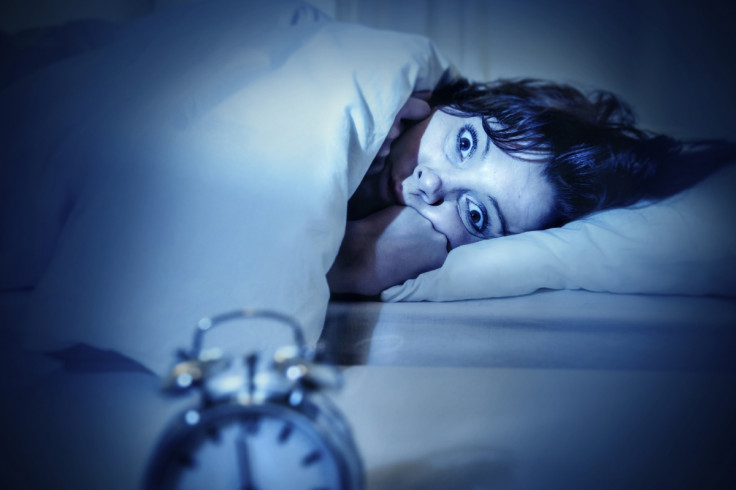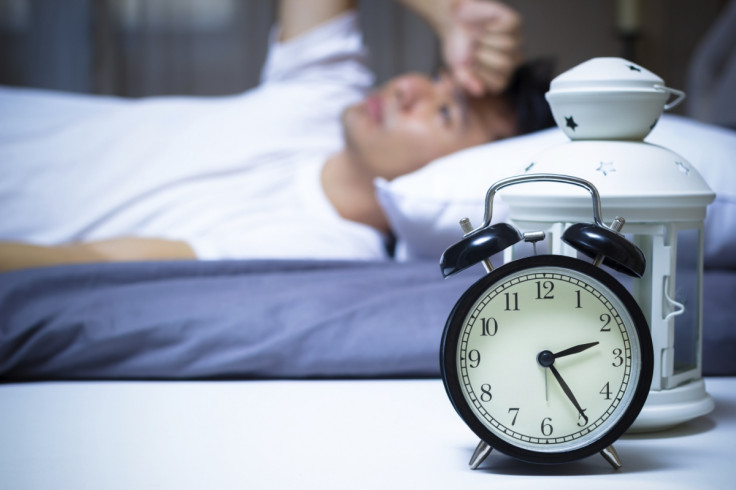World Sleep Day: Ten rare sleeping disorders you may not have heard of

Many of us have difficulty in getting a good night's sleep, whether it is down to stress, staring at our smartphones before bed or an over-reliance on caffeine. For some, the problem is more long-term - thousands of people suffer from rare sleep disorders which disrupt their lives.
World Sleep Day, observed this year on 18 March, is aimed at celebrating the benefits of healthy sleep and drawing attention to sleep problems. From Exploding Head Syndrome to Sexsomnia, here are some of the strangest sleep-related conditions you may not be aware of.
Kleine-Levin Syndrome
A rare and complex neurological disorder, KLS is characterised by recurring periods of excessive amounts of sleep. At the onset of an episode, the individual becomes progressively drowsy and sleeps for the majority of the day and night - sometimes only waking to eat or use the toilet. Each episode can last days, weeks or months, severely affecting normal daily activities such as school or work. KLS is sometimes called "Sleeping Beauty Syndrome".
Sleep paralysis
Sleep paralysis is the temporary inability to move or speak that happens when you are waking up, or less commonly, when you are falling asleep. Although you are technically awake, your body is briefly paralysed for a few seconds or minutes. Afterwards the sufferer is able to speak and move as normal. Although this can be scary for the individual, sleep paralysis does not cause you any harm. It can affect people of all ages, but it is more common in teenagers and young adults. It is caused when the mechanism that causes your muscles to relax temporarily continues after you have awoken.
Fatal Familial Insomnia
An extremely rare prion disease, Fatal Familial Insomnia affects the brain and the nervous system. It has no known cure and involves worsening insomnia, which can lead to hallucinations, delirium and confusion. When sleep is achieved, the individual may experience very vivid dreams. The average lifespan of a patient with FFI after the onset of symptoms is around 18 months.
Exploding Head Syndrome
The disorder is characterised by the perception of loud noises, such as an explosion, the clash of cymbals or a gunshot. Although it is not associated with pain, it can cause distress or confusion. Women tend to be more at risk of EHS than men and the average age of onset is 50. The physician Silas Weir Mitchell first described the disorder in 1876, stating two men suffered from "sensory discharges" which would wake them from sleep.

REM-Sleep Behaviour Disorder
REM-Sleep Behaviour Disorder involves abnormal behaviour during the sleep phase with rapid eye movement (REM) sleep, which was first described in the 1980s. REM sleep is the stage of sleep in which more vivid dreams occur. As a result of the condition, paralysis is lost and the individual may act out dreams - which ranges from limb twitching to moving around and talking. The individual's behaviour can be violent, with the potential to cause injury to themselves or others.
Restless Leg Syndrome
Also known as Willis-Ekbom disease, the condition affects the nervous system and causes an overwhelming urge to move the legs. It can also cause a crawling sensation in the feet and legs, which is often worse at night. Mild cases of the condition can be treated with lifestyle changes, such as quitting smoking, but more severe cases may require medication to regulate levels of dopamine or iron in the body.
Narcolepsy
Narcolepsy is a rare and long-term brain disorder which causes a person to suddenly fall asleep. The brain is unable to regulate sleeping and waking patterns normally, which can lead to sleep attacks (suddenly falling asleep without warning), cataplexy (loss of muscle control), excessive drowsiness and sleep paralysis.
Sleep-Related Eating Disorder
Sleep-eating occurs when an individual awakens during the night and eats and drinks, but does so unconsciously and so has little or no memory of the incident taking place. Treatment may involve staying for a few nights in a sleep lab to monitor an individual's sleeping habits, followed by treatment to reduce stress, anxiety and medication.
Sexsomnia
The condition, also known as sleep sex, is when an individual will engage in sexual activity while asleep, as part of a broad class of sleep disorders known as parasomnias. In some cases, sexsomnia has been alleged as part of the cause of sexual assault. Medication may be used to treat the condition.
Sudden Unexpected Nocturnal Death Syndrome (SUDS)
SUDS is a genetic disease which largely affects young adult men of southeast Asian descent. Matteo Vatta, an assistant professor of cardiology at the Baylor College of Medicine in Houston, told Livescience that the body fails to properly coordinate the electrical signals that cause the heart to beat. According to the Center for Disease Control and Prevention, doctors in Europe and the US first recognised the disease among refugees fleeing the Vietnam War.
© Copyright IBTimes 2025. All rights reserved.





















